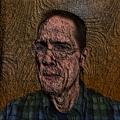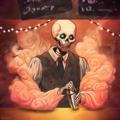pacavegano@bookwyrm.social a publié une critique de A room of one's own par Virginia Woolf
About women writing, and much more
5 étoiles
This was my second time reading this. The first time was long ago in school—from which I remembered the general premise, the fact that I liked it, and little else. This time I read it with a reading group. The other members of this group drew my attention to aspects of, and ambiguities in, the book that I might otherwise have missed. It’s a book with a lot of interesting and powerful ideas to ponder. It is also a very entertaining and often funny book. Well worth reading for its place in the history of women’s literature, for its exploration of the history of women in (Western) society, and for its analysis of, and ponderings on, literature in general.



